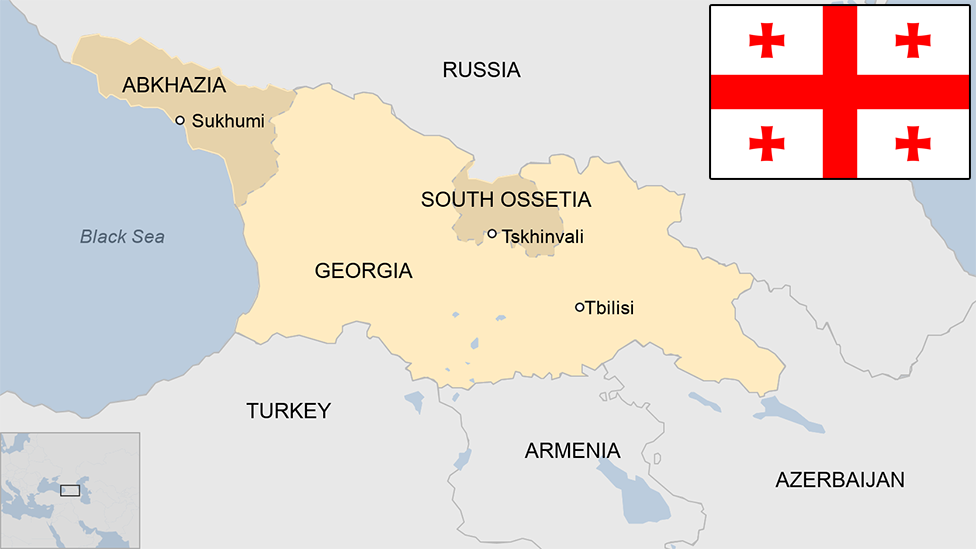South Ossetia profile
- Published
This page is no longer being updated. It was last updated on 25 October 2024
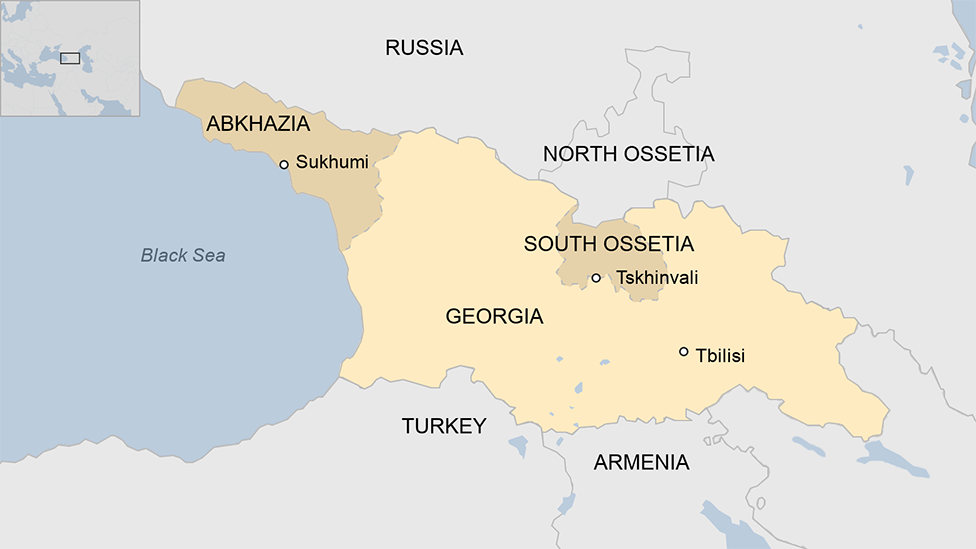
South Ossetia unilaterally broke away from Georgia in 1992 and declared itself independent. Georgia and the vast majority of UN countries do not recognize this independence.
Both Georgia and international organisations often refer to the area informally as the Tskhinvali region.
South Ossetia saw a brief war between Russia and Georgia in 2008. Moscow subsequently recognised South Ossetia as an independent state, and began a process of closer ties that Georgia views as effective annexation.
Discussions on security and stability in the South Caucasus have been held in Geneva since 2008 between Georgia, Russia, and the US with the mediation of the UN, EU and OSCE. Delegations from Georgia's breakaway regions of Abkhazia and South Ossetia participate as part of the Russian delegation.
South Ossetia is inhabited mostly by Ossetians, who speak a language distantly related to Persian. Most ethnic Georgians have been displaced from the region by the fighting. They had accounted for about a third of the population prior to the collapse of the Soviet Union.
South Ossetia is separated from Russia's North Ossetia region by a border running high in the Caucasus mountains.
Read more country profiles, external - Profiles by BBC Monitoring, external
SOUTH OSSETIA: FACTS
Capital: Tskhinvali
Area: 3,900 sq km
Population: 56,520
Languages: Ossetian, Russian plus Georgian
Life expectancy: 73 years
LEADER
President: Alan Gagloev
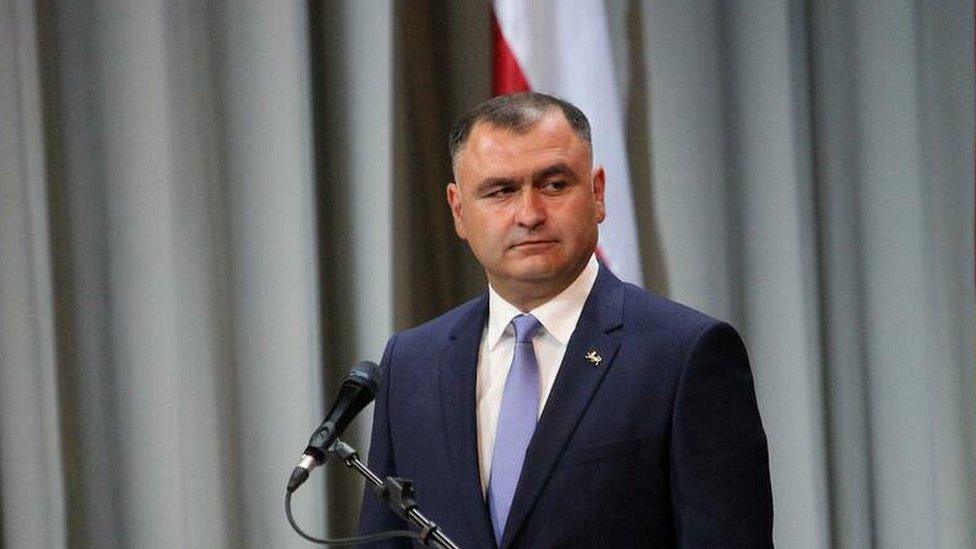
Gagloev became president of South Ossetia following the April 2022 presidential elections. One of his first acts was to suspend a referendum on unification with Russia until consultations with Moscow were complete.
During his campaign he said his priority would be the development of the region's economy. In his inauguration speech he said allied relations and integration with Russia would be "the main vector of our republic's foreign policy."
MEDIA
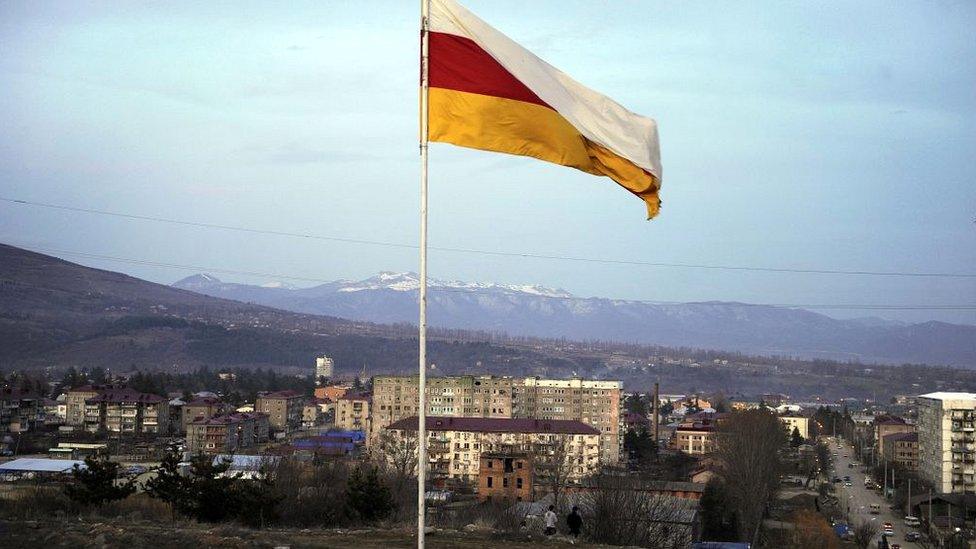
There is little media activity in South Ossetia beyond the state broadcaster and state news agency.
Moscow-based TV and radio channels are relayed extensively. A handful of private newspapers publish only sporadically.
South Ossetian media
Ir, external - territory's TV and radio broadcaster, runs the only local TV station with news in Ossetian and Russian. It operates the website mc-ir.ru, external and the Osinform news agency, external
Ossetia-Iryston, external - Russian/Ossetian satellite and internet TV station, describes itself as a "state-run autonomous" outlet, focuses on South Ossetia but is thought to be based in Russia's North Ossetia
Res, external - official news agency, formerly the South Ossetia Press and Information Committee
Respublika, external - state-funded newspaper
Sputnik-Ossetia, external - Russian broadcaster with versions in Ossetian and Russian
Yuzhnaya Osetiya, external - state-funded newspaper
Other media
Caucasian Knot, external - independent regional news website, in Russian and English
Ekho Kavkaza, external - Russian-language service of Radio Free Europe/Radio Liberty (RFE/RL), extensively covers both Abkhazia and South Ossetia
Open Caucasus Media, external - English-language independent regional news website
TIMELINE
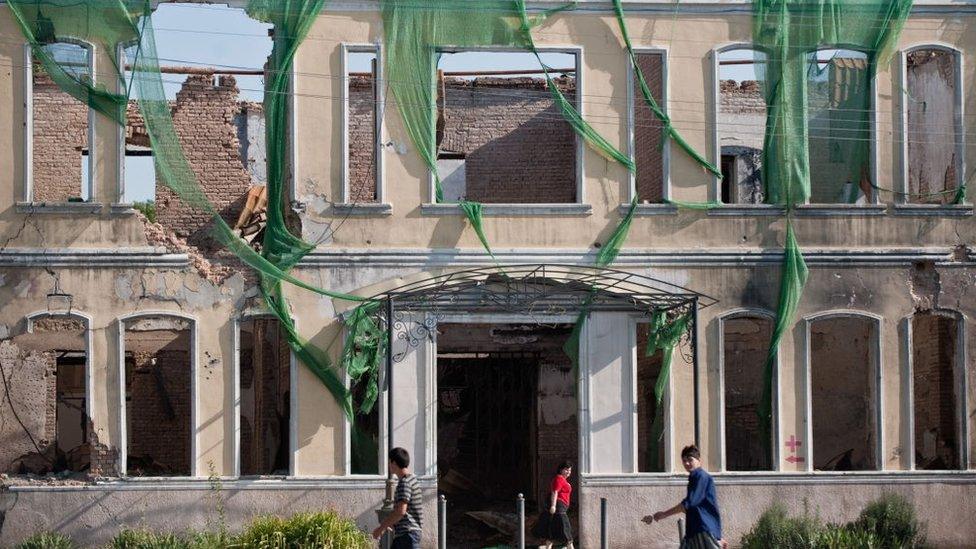
Tskhinvali was heavily damaged in the 2008 fighting
Some key dates in South Ossetia's history:
18th/19th Centuries - Russian empire expands southwards into the Caucasus.
1920s - Ossetians ally with the Bolshevik forces that occupy Georgia. The USSR divides the area into two administrative regions.
1980s/90s - With nationalist leader Zviad Gamsakhurdia in Georgia, there is growing separatist sentiment in South Ossetia.
1990-92 - After several outbreaks of violence, South Ossetia declares aim of separating from Georgia and proclaims independence in 1992. Sporadic violence involving Georgian irregular forces and Ossetian fighters continues until agreement on the deployment of Georgian, Ossetian and Russian peacekeepers is reached.
2008 - Tensions between Georgia and Russia escalate into a full-blown war after Georgia tries to retake South Ossetia. Russian forces push Georgian troops out of South Ossetia and Abkhazia. After five days of fighting the two sides sign a French-brokered peace agreement. Russia recognises both South Ossetia and Abkhazia as independent states - very few other countries do.
2009 - Russia bolsters its position in South Ossetia by signing a five-year agreement to take formal control of its frontiers with Georgia proper, as well as those of Abkhazia.
2015 - Russia signs an "alliance and integration agreement" with South Ossetia abolishing border checkpoints. Tbilisi views this as a step towards Russian annexation of the region. Russian forces push the border fence 1.5km further into Georgia proper - a short distance from Georgia's main west-east highway.
2017 - Region votes to rename itself the State of Alania. Alania was originally a medieval kingdom in the central North Caucasus, but there is a dispute in the region over who are the historic heirs of this kingdom.
2022 - Newly-elected President Alan Gagloev suspends a planned referendum on joining Russia.
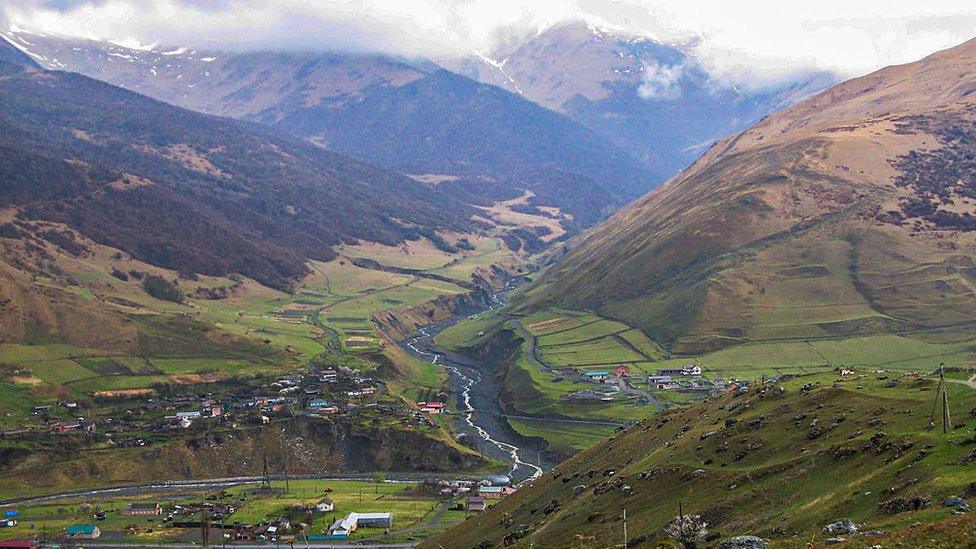
Much of the region lies more than 1,000 metres above sea level
Related topics
- Published25 March 2024

- Published28 August 2023

- Published28 August 2023
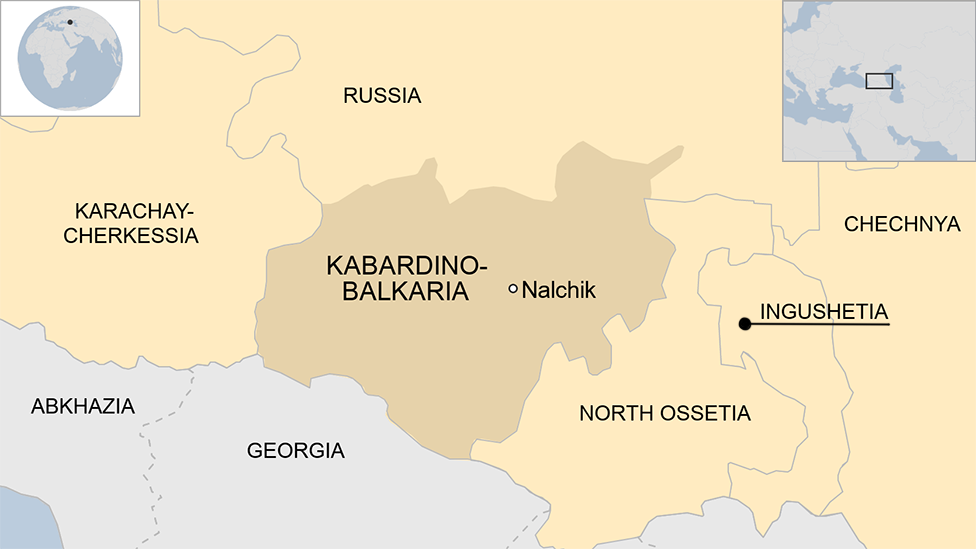
- Published17 October 2024
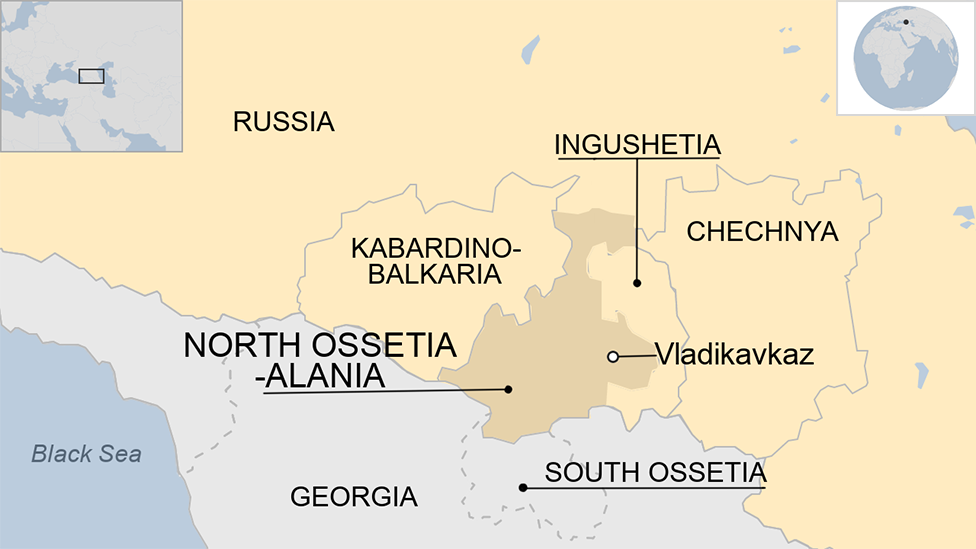
- Published28 August 2023
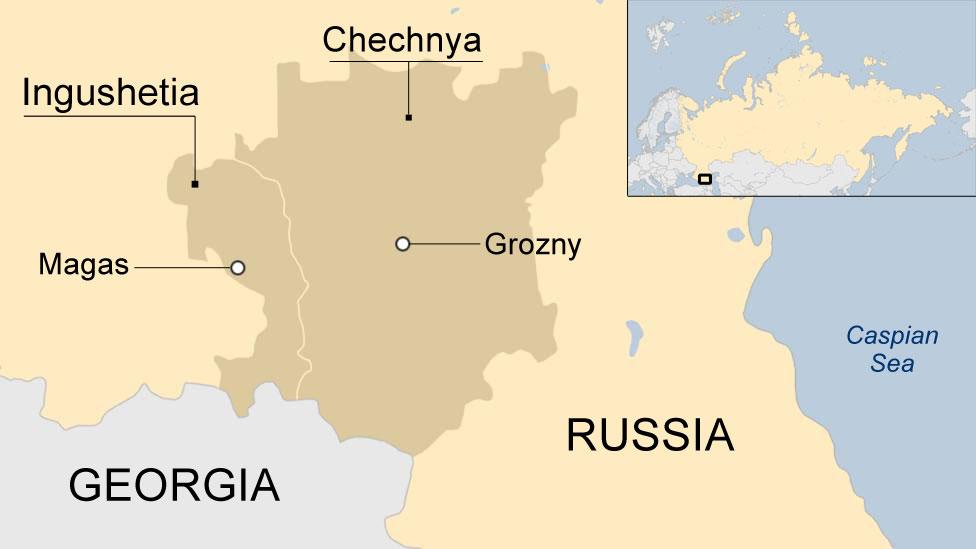
- Published28 August 2023
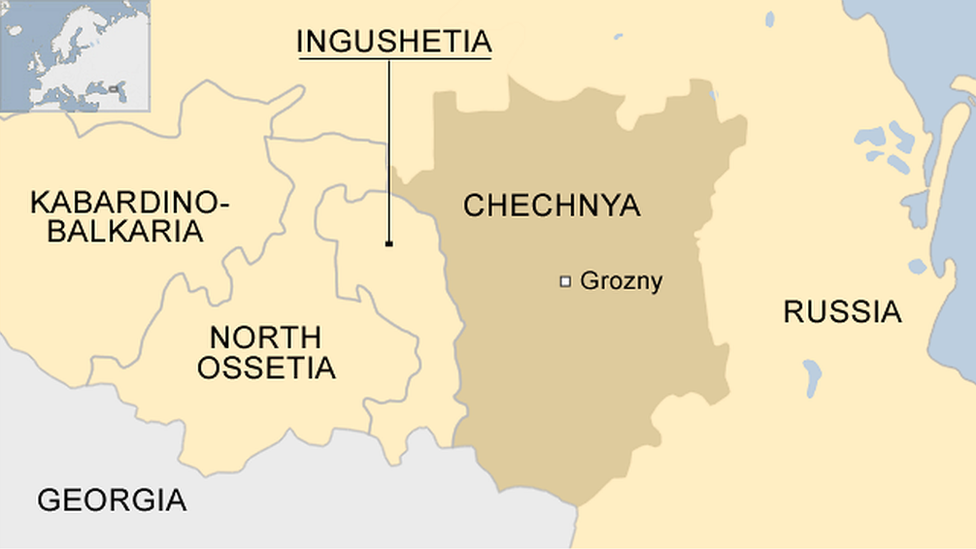
- Published30 October 2023
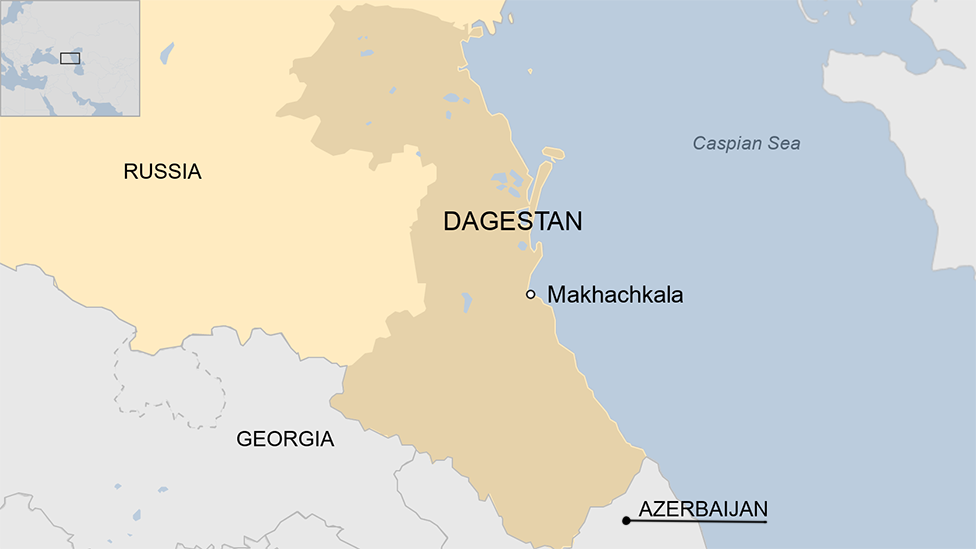
- Published19 November 2024

- Published31 December 2024
